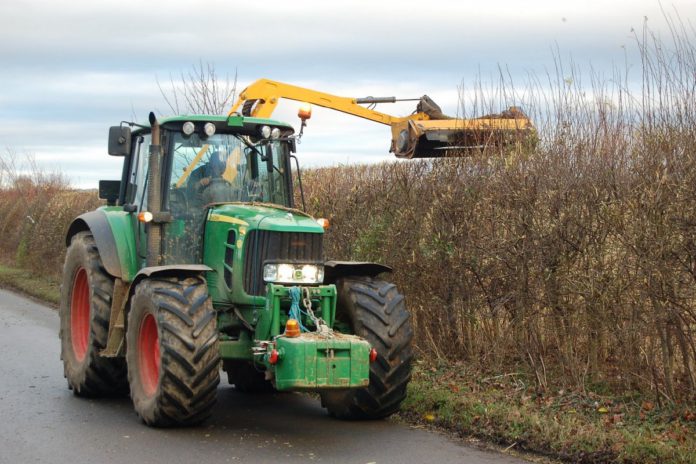The hedge-cutting season opens from today (Wednesday, September 1st, 2021).
Landowners, farmers, and householders are being asked to ensure their roadside hedges and overhanging trees are cut and maintained so road users can travel safely.
Section 70 of the Roads Act 1993 places responsibility for the maintenance of roadside hedges on the owners/occupiers of the adjoining lands.
Hedge-cutting season
The season when hedge cutting is permitted under the Wildlife Act is between the start of September and the end of February the following year.
Earlier this year, the FCI called on the department to grant a 16-day extension to the current open working period because of a “very prolonged” period of heavy rain.
The body stated that such weather conditions confirm why the current closed period deadlines are “no longer practical”.
Hedge cutting and vegetation clearance are restricted to the 6-month period, from September to February, but there are exceptions.
The National Parks & Wildlife Service (NPWS) of the Department of Housing Local Government and Housing issued a statement earlier this year.
“It is important to point out that the legislation allows both landowners and public authorities to address hedges for road safety reasons at any time of the year.”
Japanese knotweed
Furthermore, local authorities have reminded landowners not to cut Japanese knotweed. Also, no ground disturbance should take place at these sites at any time of year.
The public is asked to report any instances of Japanese knotweed to your local county council.
In recent weeks, we reported that researchers have discovered how to control Japanese knotweed infestations.
In collaboration with multinational infrastructure consulting firm, AECOM and the University of Leeds, NUI Galway led the study.
They discovered that removing moisture could act as a potential control strategy for smaller infestations of Japanese knotweed.
Findings show that incorrect herbicide treatment cannot control the growth and regeneration of this invasive plant.





